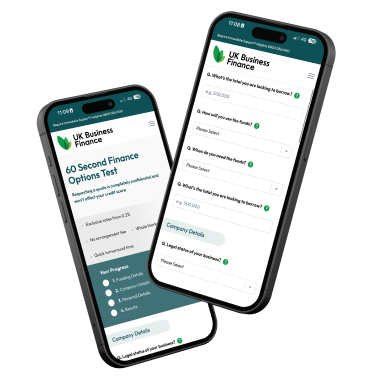Equipment finance and refinance
Finance and refinance for business equipment
Equipment finance and refinance help businesses purchase new equipment or unlock the value of existing equipment assets. They are forms of asset funding that can help companies grow.
Equipment financing and refinancing spread the cost of expensive assets and allow businesses to benefit from their full usage whilst retaining capital and safeguarding cash flow.
How does equipment finance work?
Equipment finance can be a good option for businesses seeking to increase their asset holding and may be used for new and pre-owned equipment. Various types of equipment funding exist, including equipment leases and hire purchase contracts.
Equipment leases
An equipment lease requires the borrowing business to make monthly instalments to the financier, typically at a fixed interest rate. This is a good option for businesses that do not want to own the equipment at the end of the lease contract.
There is typically a range of options available at the end of the agreement. The lender may allow the borrower to upgrade the equipment, extend the lease agreement, or hand the asset back if it is no longer needed.
A key element of an equipment lease is that ownership cannot transfer to the borrower, unlike an equipment hire purchase agreement.
Equipment hire purchase
Financing equipment through hire purchase enables a company to take ownership of the asset at the end of the contract. The borrowing business pays an initial deposit, which is generally around 10 per cent of the value of the equipment.
Monthly repayments follow and are fixed for the duration of the agreement - typically up to six years. A final ‘completion’ fee is then charged if the business opts to take ownership of the asset.
How does equipment refinance work?
If a business already owns expensive equipment it can sell it to a financier and rent it back whilst retaining full, uninterrupted usage rights. This is called equipment refinancing and it provides a large cash injection for a business.
Equipment refinancing is also beneficial for cash flow - the business repays the financing company via fixed instalments over a pre-agreed period, after which time they become owners of the asset again.
What are the advantages of equipment finance and refinance?
Spreads the cost of expensive equipment
Healthy cash flow is maintained as businesses can avoid a large outlay of capital, and repay in affordable amounts over an extended period.
Flexibility of finance options
Equipment finance products offer a range of options to borrowers, including full ownership, an extension of a finance lease, or an upgrade of the piece of equipment.
Tax advantages
The repayments on a finance lease are tax deductible. If hire purchase is chosen, the business may be able to claim capital allowances on ownership of the asset at the end of the agreement.
Unlock the value in existing equipment
By refinancing an existing piece of equipment a company can release working capital tied up in the asset and use it for other projects or business areas.
How to apply for equipment finance or refinance
We can help you secure the most appropriate type of equipment finance for your business. Our team will search the whole of the market to find the best quotes, and there are no fees to pay for our services.
UK Business Finance are commercial finance brokers, rather than lenders, so please get in touch to find the best equipment finance and refinancing deals for your business.
Further Reading
Top Finance Tips
We work across a wide range of sectors throughout the UK, providing specialist advice to each sector.

How to financially prepare for investor exits
Whether your business is at an early stage or it’s more established, the financial boost provided by external investment, such as from private equity firms, angel investors, and venture capitalists, is invaluable.

How to finance a MBO
If you’re considering conducting a management buyout (MBO), there are various means by which you can fund it. Financing commonly involves a level of personal funding by individual members of the management team combined with additional external borrowing, such as bank loans and asset financing.

What lenders look for in a business loan application
Knowing what lenders look for in a business loan application helps you present your business in the best light – an important consideration, as being rejected for a loan damages your company’s credit rating and makes it difficult to borrow in the future.

What is a commercial finance broker?
A commercial finance broker is a professional intermediary who helps business owners to source the best lenders and deals. They provide a vital service that eases access to funding and ensures businesses obtain the most appropriate finance for their needs.




